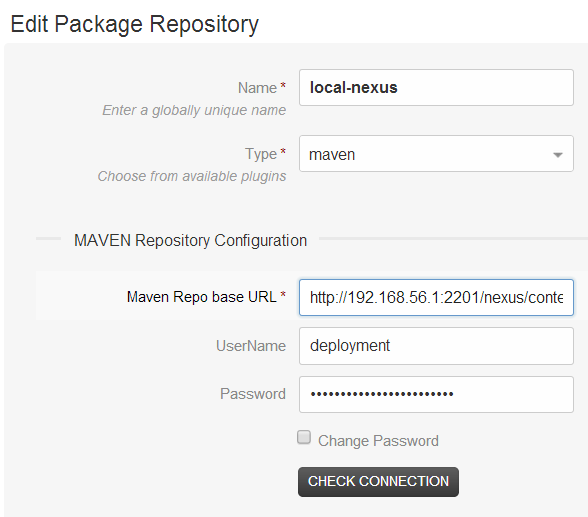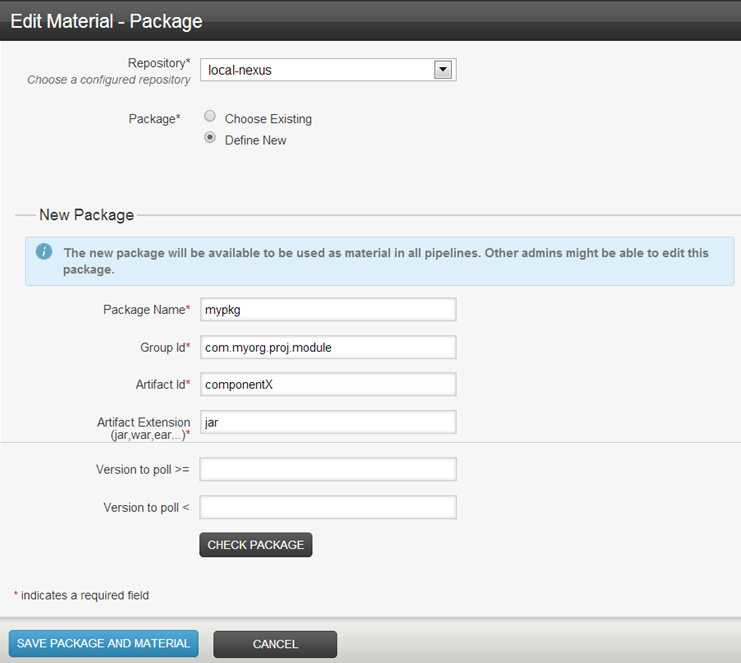This is a package material plugin for Go. It is currently capable of polling Nexus repositories.
The behaviour and capabilities of the plugin is determined to a significant extent by that of the package material extension point in Go. Be sure to read the package material documentation before using this plugin.
Just drop go-maven-poller.jar into plugins/external directory and restart Go. More details here
Repo URL must be a valid http or https URL. Basic authentication (user:password@host/path) is supported.
Group Id and Artifact Id refer to the corresponding entries in pom.xml. Click check pacakge to make sure the plugin understands what you are looking for.
The following additional POM info is accessed by the plugin:
url, if available, is used to display a TrackBack link. This is handy when the package is published outside of Go and we need a way to trace back to the piece of automation infrastructure (e.g. Jenkins job) that published it.
The following information is made available as environment variables for tasks:
GO_PACKAGE_<REPO-NAME>_<PACKAGE-NAME>_LABEL
GO_REPO_<REPO-NAME>_<PACKAGE-NAME>_REPO_URL
GO_PACKAGE_<REPO-NAME>_<PACKAGE-NAME>_GROUP_ID
GO_PACKAGE_<REPO-NAME>_<PACKAGE-NAME>_ARTIFACT_ID
GO_PACKAGE_<REPO-NAME>_<PACKAGE-NAME>_PACKAGING
GO_PACKAGE_<REPO-NAME>_<PACKAGE-NAME>_LOCATION
The LOCATION variable points to a downloadable url.
To download the package locally on the agent, we could write a curl (or wget) task like this:
<exec command="/bin/bash" >
<arg>-c</arg>
<arg>curl -o /tmp/mypkg.jar $GO_PACKAGE_REPONAME_PKGNAME_LOCATION</arg>
</exec>
When the task executes on the agent, the environment variables get subsituted and the package gets downloaded.
Or, to simply pass it as an argument to a deploy script on a remote server
<exec command="/bin/bash">
<arg>-c</arg>
<arg>ssh server "cd /to/dest/dir;deploy.sh $GO_PACKAGE_REPONAME_PKGNAME_LOCATION"</arg>
</exec>
This plugin will detect at max one package revision per minute (the default interval at which Go materials poll). If multiple versions of a package get published to a repo in the time interval between two polls, Go will only register the latest version in that interval.

